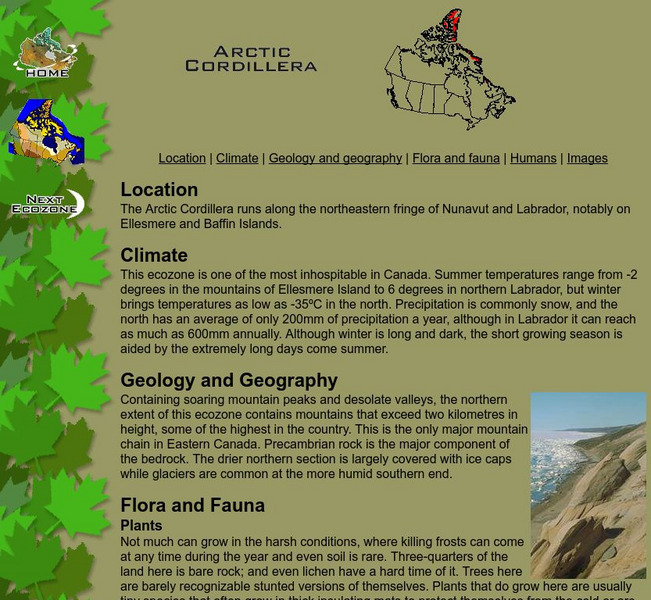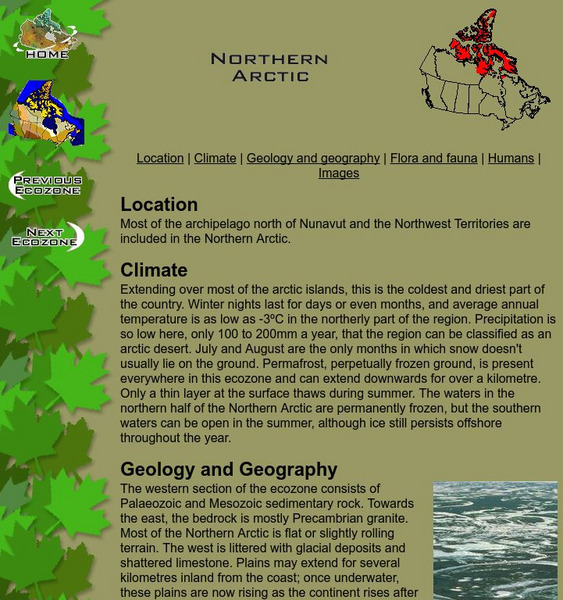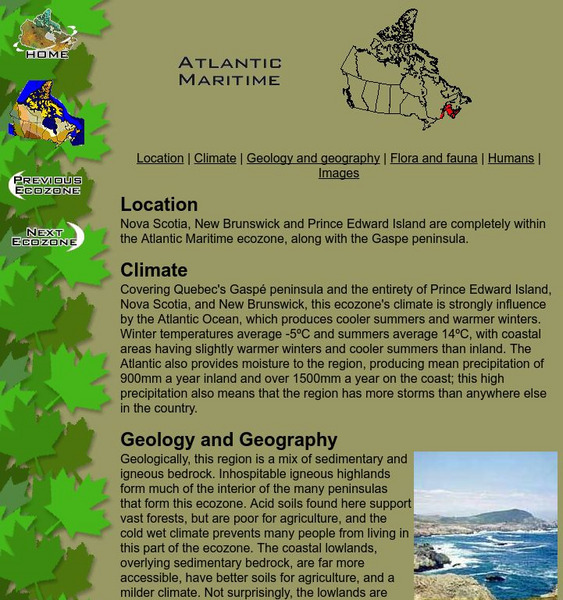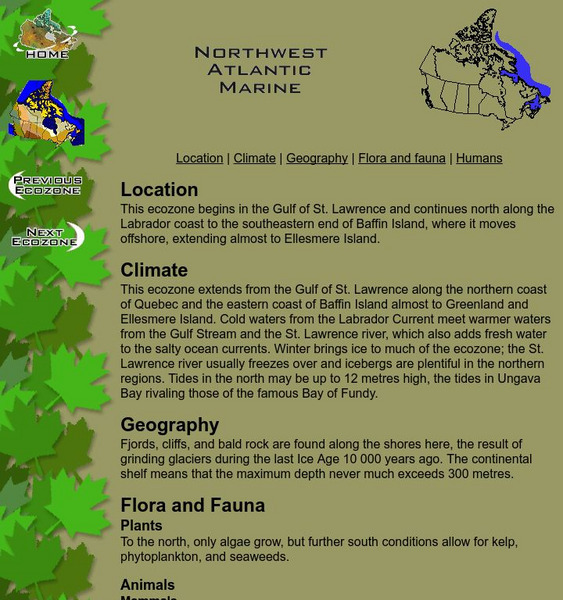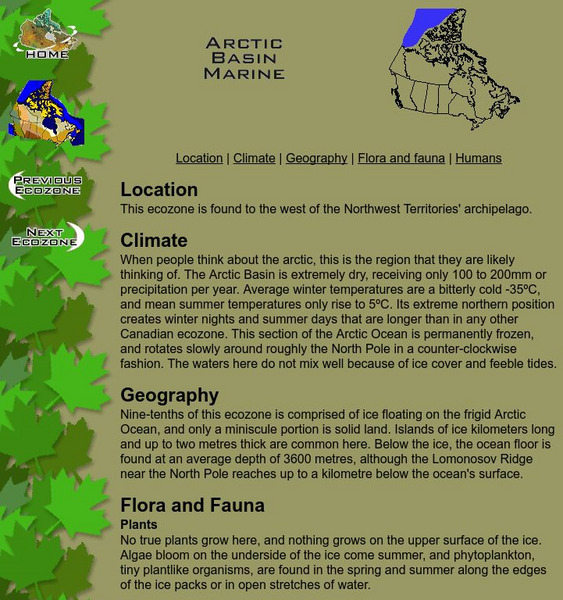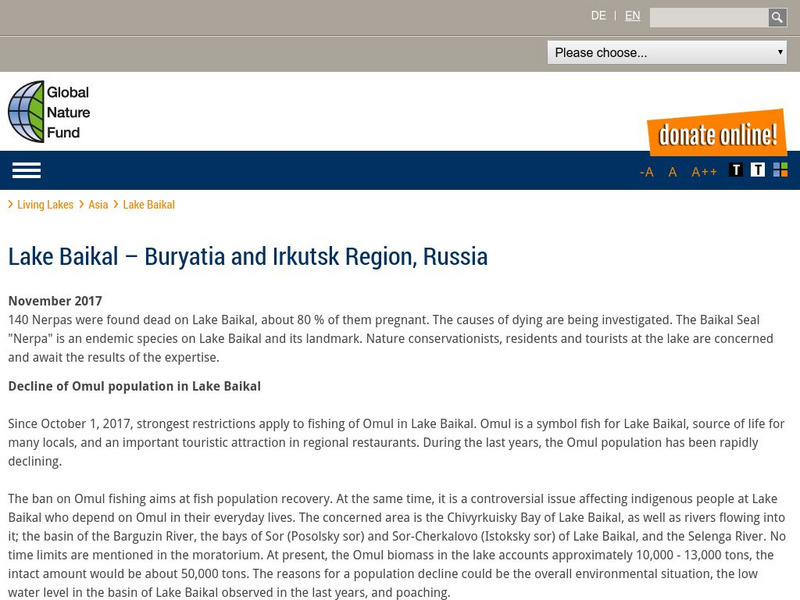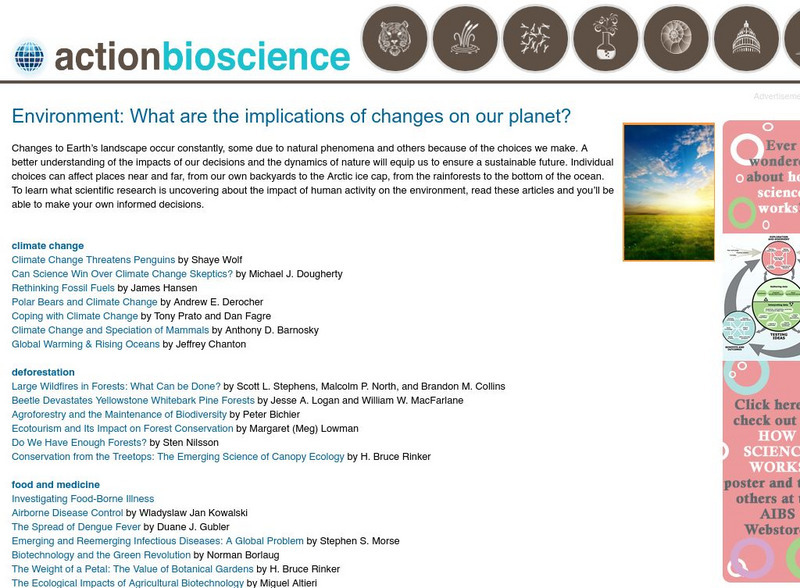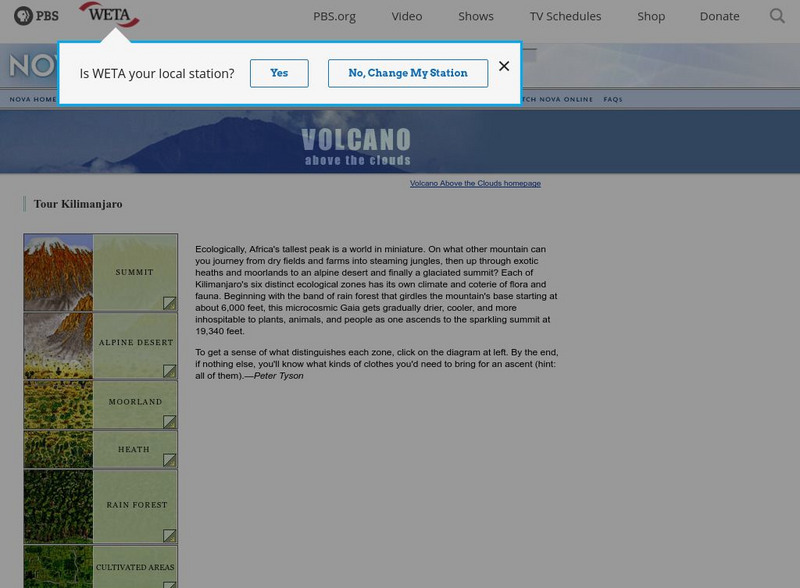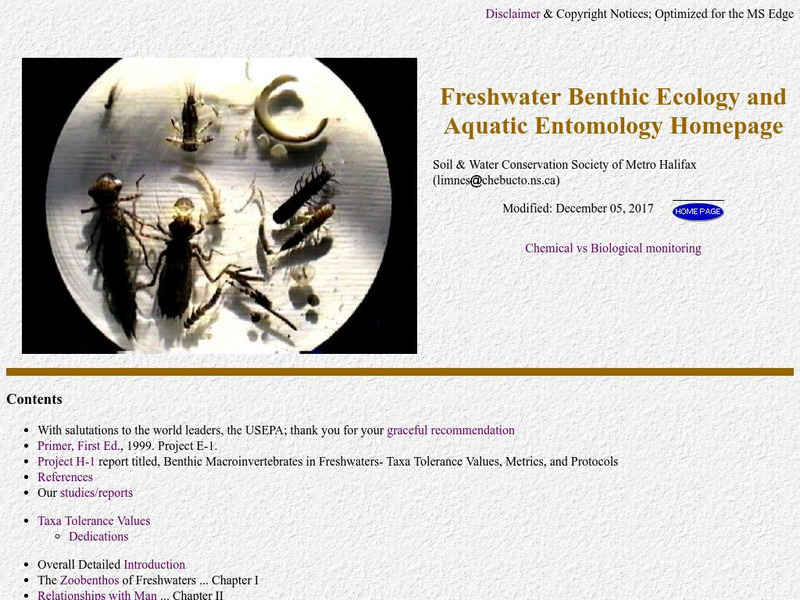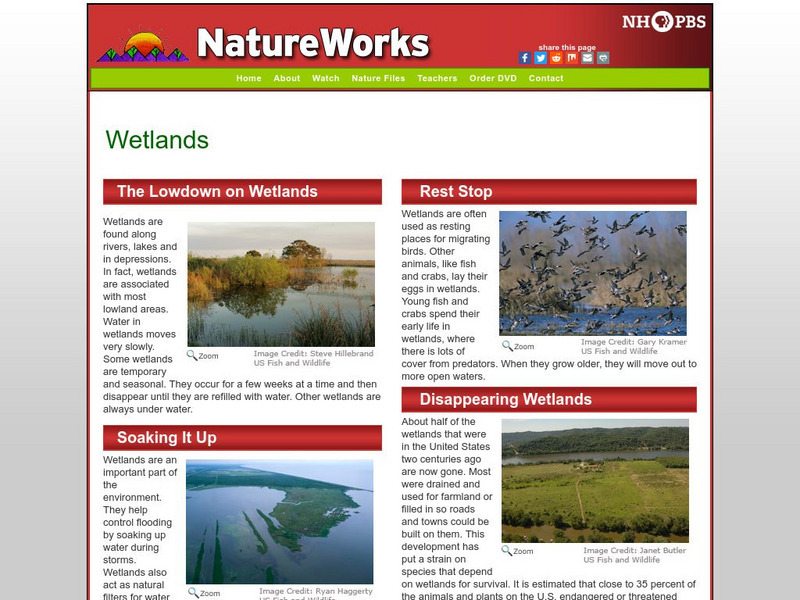CK-12 Foundation
Ck 12: Life Science: Habitat and Niche
[Free Registration/Login may be required to access all resource tools.] Are you on the basketball team? Are you a cheerleader? Do you play an instrument in the band? Your niche would be your role or place in the school. Organisms also...
A-Z Animals
A Z Animals: Reference: Habitats: Temperate Forest
Learn about temperate climate ecosystems, and how the geography affects the life within them.
Other
Rainforest Alliance
Rainforest Alliance aims to protect ecosystems and the people and wildlife that depend on them by transforming land-use practices, business practices, and consumer behavior.
McGill University
Mc Gill University: Canadian Biodiversity: Ecozones: Arctic Cordillera
A concise description of the Arctic Cordillera that runs along the northeastern fringe of Nunavut and Labrador. It includes an excellent collection of images of the landscape as well as those of animals and birds native to the location....
McGill University
Mc Gill University: Canadian Biodiversity: Ecozones: Northern Arctic
A brief, concise description of the chain of islands that form most of the archipelago north of Nunavut and the Northwest Territories. It includes an excellent collection of images of the landscape as well as those of animals and birds...
McGill University
Mc Gill University: Canadian Biodiversity: Ecozones: Atlantic Maritime
This Atlantic Maritime ecozone includes Nova Scotia, New Brunswick, and Prince Edward Island. This brief, concise description includes a collection of images of the animals and birds native to the location. Many of the images include...
McGill University
Mc Gill University: Canadian Biodiversity: Ecozones: Northwest Atlantic Marine
The Northwest Atlantic Marine ecozone begins in the Gulf of St. Lawrence and extends to the southeastern end of Baffin Island. This is a brief, concise description of the location, climate, geology, and flora and fauna. It includes some...
PBS
Pbs Kids: Plum Landing: Explore the Outback
In this interactive game, players are challenged to complete a series of missions to photograph desert plants and animals in the Australian outback. Through the clues provided, players learn about desert ecosystems, the plants and...
McGill University
Mc Gill University: Canadian Biodiversity: Ecozones: Arctic Basin Marine
The Arctic Basin Marine ecozone is found to the west of the Northwest Territories archipelago. This brief, concise description includes a collection of images of the animals and birds native to the location. Many of the images include...
McGill University
Mc Gill University: Canadian Biodiversity: Ecozones: Arctic Archipelago Marine
The Arctic Archipelago Marine ecozone includes Hudson Bay and most of the water surrounding the islands of Nunavut and the Northwest Territories. This is a brief, concise description of the location, climate, geology, and flora and...
TeachEngineering
Teach Engineering: A Mini World
As learners learn about the creation of biodomes, they are introduced to the steps of the engineering design process, including guidelines for brainstorming. Students learn how engineers are involved in the design and construction of...
Other
Living Lakes: Lake Baikal
Provides a thorough look at the biological and geological characteristics of Lake Baikal in Siberia, Russia. Includes wonderful pictures.
Utah Education Network
Uen: Utah's Plants and Animals Do You Know Where I Live?
Can you figure out what types of biomes different organisms belong in? You'll be presented with a variety of organisms and asked which of three biomes they belong in.
Other
Grasslands Conservation Council of British Columbia
An overview of the ecosystems in British Columbia.
American Institute of Biological Sciences
Action Bioscience: Issues in Environment
This site from American Institute of Biological Sciences provides a collection of articles on current issues in environmental science and human impacts on the environment. Several articles available in Spanish.
PBS
Nh Pbs: Nature Works: Swamps
What characteristics make a swamp a swamp? This site features information on the Great Dismal Swamp, Conifer Swamps, Okefenokee Swamps, Shrub Swamps, Hardwood Swamps, and Cypress Swamps. This site also offers some great photographs of...
PBS
Nova: Tour Kilimanjaro
Experience six different ecological zones as you climb Mt. Kilimanjaro. Pictures of plants living in each of the zones are also part of this virtual tour of the mountain.
Other
Freshwater Ecology
This is a comprehensive and detailed site providing information on aquatic macroinvertebrates. The emphasis is on biomonitoring of water quality through quantitative assessment of numbers and types of small aquatic organisms.
E-learning for Kids
E Learning for Kids: Science: Pacific Ocean: What Can We Find on a Beach?
Josephine lives on the Marshall Islands. Follow her to the beach and find out what kinds of plants and animals live there.
Alabama Learning Exchange
Alex: Where Does Our Waste Go?
In this lesson plan from "The Friends of Auntie Litter", (www.auntielitter.org), waste disposal will be explored. The Pollution Patrol follows the steps involved in trash disposal, starting with a girl tearing a sheet of paper out of her...
Other
Temperate Forest Organization: Temperate Forest
Provides links to sites such as forestry, population, management, diversity, and fire. There are lesson plans, tours and educational links for teachers.
PBS
Nh Pbs: Nature Works: Wetlands
Did you know that wetlands are frequently used as resting stops for migrating birds? This is just one of the many interesting facts found within this educational resource. This site features information on the characteristics, types,...
National Center for Ecological Analysis and Synthesis, University of California Santa Barbara
Kids Do Ecology: Learn About Ecology
This resource provides information about ecology.
E-learning for Kids
E Learning for Kids: Science: Caribbean Sea: Pirates: What Are Some Common Habitats?
Pete is shipwrecked and exploring environments around him. Want to join him as he learns about plant and animal habitats?





